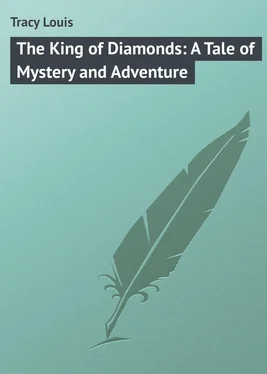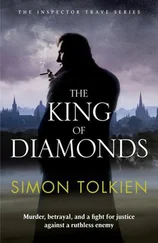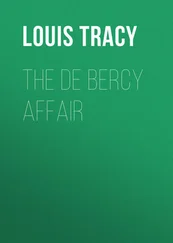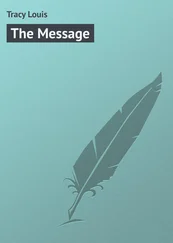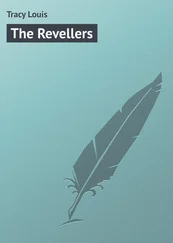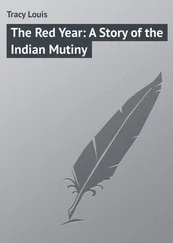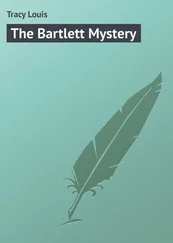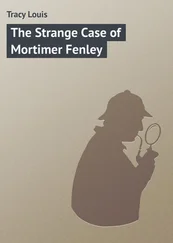Louis Tracy - The King of Diamonds - A Tale of Mystery and Adventure
Здесь есть возможность читать онлайн «Louis Tracy - The King of Diamonds - A Tale of Mystery and Adventure» — ознакомительный отрывок электронной книги совершенно бесплатно, а после прочтения отрывка купить полную версию. В некоторых случаях можно слушать аудио, скачать через торрент в формате fb2 и присутствует краткое содержание. Жанр: foreign_prose, на английском языке. Описание произведения, (предисловие) а так же отзывы посетителей доступны на портале библиотеки ЛибКат.
- Название:The King of Diamonds: A Tale of Mystery and Adventure
- Автор:
- Жанр:
- Год:неизвестен
- ISBN:нет данных
- Рейтинг книги:4 / 5. Голосов: 1
-
Избранное:Добавить в избранное
- Отзывы:
-
Ваша оценка:
- 80
- 1
- 2
- 3
- 4
- 5
The King of Diamonds: A Tale of Mystery and Adventure: краткое содержание, описание и аннотация
Предлагаем к чтению аннотацию, описание, краткое содержание или предисловие (зависит от того, что написал сам автор книги «The King of Diamonds: A Tale of Mystery and Adventure»). Если вы не нашли необходимую информацию о книге — напишите в комментариях, мы постараемся отыскать её.
The King of Diamonds: A Tale of Mystery and Adventure — читать онлайн ознакомительный отрывок
Ниже представлен текст книги, разбитый по страницам. Система сохранения места последней прочитанной страницы, позволяет с удобством читать онлайн бесплатно книгу «The King of Diamonds: A Tale of Mystery and Adventure», без необходимости каждый раз заново искать на чём Вы остановились. Поставьте закладку, и сможете в любой момент перейти на страницу, на которой закончили чтение.
Интервал:
Закладка:
"Have you any more of these stones, boy?"
Philip, with lips tensely set, was desperately cool again. He moved his arm, and the constable's grasp tightened.
"You are hurting me," said the boy. "I merely wish to put my hand in my pocket. Are you afraid of me, that you hold me so fast?"
The policeman, like the rest, did not fail to notice Philip's diction. The scornful superiority of his words, the challenge of the final question, took him aback. He relaxed his grip and grinned confusedly.
Philip instantly produced his paper of diamonds and opened it widely, so that all the stones could be seen. He handed the parcel to the policeman.
"Take good care of them, constable," he said. "Judging from results, they would not be safe in that man's hands."
But Isaacstein did not hear the insult. When he saw the collection he nearly lost his senses. What had he done? Was he or the boy mad? Veins stood out on his forehead, and he wobbled so fearfully that he clutched the desk for support. A scarecrow of a boy wandering about London with thousands of pounds' worth of diamonds in his pocket, wrapped up in a piece of newspaper like so many sweets! There were not any meteoric diamonds of such value in all the museums and private collections in the world. He began to perspire. Even the policeman was astounded, quite as much at being called "constable" by Philip as by the mean appearance of articles presumably of great value.
"This is a rum go. What do you make of it, Mr. Isaacstein?" he said.
The query restored the Jew's wits. After all, here was the law speaking. It would have been the wildest folly for a man of his position to dabble in this mysterious transaction.
With a great effort he forced himself to speak.
"Lock him up instantly. This matter must be fully inquired into. And do be careful of that parcel, constable. Where do you take him? To the Bridewell station? I will follow you in a cab in five minutes."
So Philip, handcuffed, was marched down the stairs past the gratified office boy and out into the street.
As for Isaacstein, he required brandy, and not a little, before he felt able to follow.
CHAPTER V
Perplexing a Magistrate
In after years Philip never forgot the shame of that march through the staring streets. The everlasting idlers of London's busiest thoroughfares gathered around the policeman and his prisoner with grinning callousness.
"Wot's 'e bin a-doin' of?"
"Nicked a lydy's purse, eh?"
"Naw! Bin ticklin' the till, more like."
"Bli-me, don't 'e look sick!"
They ran and buzzed around him like wasps, stinging most bitterly with coarse words and coarser laughter. An omnibus slowed its pace to let them cross the road, and Philip knew that the people on top craned their necks to have a good look at him. When nearing the viaduct steps, the policeman growled something at the pursuing crowd. Another constable strode rapidly to the entrance and cut off the loafers, sternly advising them to find some other destination. But the respite was a brief one. The pair reached Farringdon Street, and had barely attracted attention before they passed the restaurant where Philip had lunched. The hour was yet early for mid-day customers, and the bald-headed proprietor saw them coming. He rushed out. The greengrocer, too, turned from his wares and joined in the exclamations of his friend at this speedy dénouement of the trivial incident of twenty minutes earlier.
The restaurant keeper was made jubilant by this dramatic vindication of the accuracy of his judgment.
"The thievin' young scamp!" he ejaculated. "That's right, Mr. Policeman. Lock 'im up. 'E's a reg'lar wrong 'un."
The constable stopped. "Hello!" he said. "Do you know him?"
"I should think I did. 'E kem 'ere just now an' obtained a good blowout on false pretencies, an' – "
"Old 'ard," put in the greengrocer, "that's not quite the ticket. 'E asked you to trust 'im, but you wouldn't."
The stout man gurgled.
"Not me. I know 'is sort. But 'e 'ad you a fair treat, Billy."
"Mebbe, an' mebbe not. Ennyhow, two bob won't break me, an' I'm sorry for the kid. Wot's 'e done, Mr. Policeman?" Mr. Judd was nettled, yet unwilling to acknowledge he was wholly wrong.
"Stole a heap of diamonds. Do either of you know him?"
"Never saw him afore this mornin'."
"Never bin in my 'ouse before."
"Then come along," and Philip was tugged onward, but not before he found courage to say:
"Thank you once more, Mr. Judd. I will keep my word, never fear."
"What are you thanking him for?" said the constable.
"For believing in me," was the curt answer.
The policeman tried to extract some meaning from the words, but failed. He privately admitted that it was an extraordinary affair. How came a boy who spoke like a gentleman and was dressed like a street Arab to be wandering about London with a pocketful of diamonds and admitted to the private office of the chief diamond merchant in Hatton Garden? He gave it up, but silently thanked the stars which connected him with an important case.
At last Philip's Via Dolorosa ended in the Bridewell police station. He was paraded before the inspector in charge, a functionary who would not have exhibited any surprise had the German Emperor been brought before him charged with shoplifting.
He opened a huge ledger, tried if his pen would make a hair stroke on a piece of paper, and said, laconically:
"Name?"
No answer from the prisoner, followed by emphatic demands from inspector and constable, the former volunteering the information that to refuse your name and address was in itself an offense against the law.
Philip's sang-froid was coming to his aid. The horror of his passage through the gaping mob had cauterized all other sentiments, and he now saw that if he would preserve his incognito he must adopt a ruse.
"Philip Morland," he said, doggedly, when the inspector asked him his name for the last time before recording a definite refusal.
"Philip Morland!" It sounded curiously familiar in his ears. His mother was a Miss Morland prior to her marriage, but he had not noticed the odd coincidence that he should have been christened after the "Sir Philip" of the packet of letters so fortunately left behind that morning.
"Address?"
"Park Lane."
The inspector began to write before the absurdity of the reply dawned on him. He stopped.
"Is your mother a caretaker there, or your father employed in a mews?"
"My father and mother are dead."
"Then will you kindly inform us what number in Park Lane you live at?"
"I have not determined that as yet. I intend to buy a house there."
Some constables lounging about the office laughed, and the inspector, incensed out of his routine habits, shouted, angrily:
"This is no place for joking, boy. Answer me properly, or it will be worse for you."
"I have answered you quite properly. The constable who brought me here has in his possession diamonds worth many thousands of pounds belonging to me. I own a hundred times as many. Surely I can buy a house in Park Lane if I like."
The inspector was staggered by this well-bred insolence. He was searching for some crushing legal threat that would frighten the boy into a state of due humility when Mr. Isaacstein entered.
The Hatton Garden magnate again related the circumstances attending Philip's arrest, and the inspector promptly asked:
"What charge shall I enter? You gave him into custody. Do you think he has stolen the diamonds?"
Isaacstein had been thinking hard during a short cab drive. His reply was unexpectedly frank.
"He could not have stolen what never existed. There is no such known collection of meteoric diamonds in the world."
"But there must be, because they are here."
Читать дальшеИнтервал:
Закладка:
Похожие книги на «The King of Diamonds: A Tale of Mystery and Adventure»
Представляем Вашему вниманию похожие книги на «The King of Diamonds: A Tale of Mystery and Adventure» списком для выбора. Мы отобрали схожую по названию и смыслу литературу в надежде предоставить читателям больше вариантов отыскать новые, интересные, ещё непрочитанные произведения.
Обсуждение, отзывы о книге «The King of Diamonds: A Tale of Mystery and Adventure» и просто собственные мнения читателей. Оставьте ваши комментарии, напишите, что Вы думаете о произведении, его смысле или главных героях. Укажите что конкретно понравилось, а что нет, и почему Вы так считаете.
